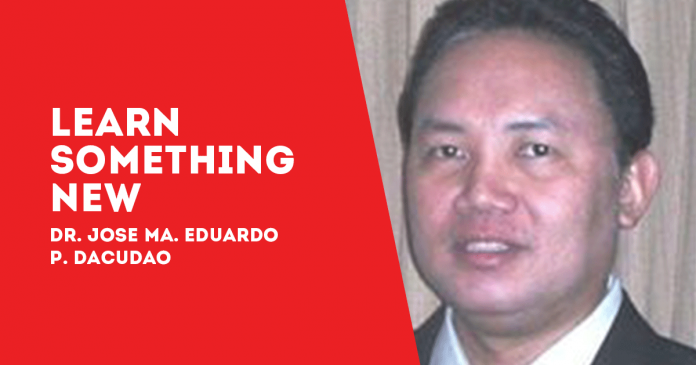
BY DR. JOSE PALU-AY DACUDAO
CONSIDER what the New Testament has to say: “All of them were filled with the Holy Spirit and began to speak in other tongues… When they heard this sound, a crowd came together in bewilderment, because each one heard them speaking in his own language… We hear them declaring the wonders of God in our own tongues!” (Acts 2:4-11)
Taken literally, this passage has always been taken by Christians as a miracle. Some Christian groups have even been founded that focus on the attempted reenactment of this passage. Speaking in tongues, a miracle, a sign from God!
What is also clear from this passage, although often forgotten, is that the apostles evangelized, right at the beginning 2,000 years ago, in the languages of their listeners, as directed by God the Holy Spirit who descended upon them and filled them. And here is the clear implication that has often been left out in many Christian theologies.
God encouraged the apostles, in the most direct of ways, to use the languages of the world.
Now why would God do that? Just what are the languages of the world?
The languages of the world are His creations. Each language of the world in general also defines an ethnolinguistic people, namely the people that speaks that particular language. No man has created a naturally occurring language or the people that it defines. They are as naturally occurring as the birds and the beasts, and the flora that gives Creation goodness, meaning, and beauty.
God saw all that he had made, and it was very good. (Gen 1:31)
In the beginning was the Word, and the Word was with God, and the Word was God. He was with God in the beginning. Through him all things were made; without him nothing was made that has been made. In him was life and that life was the light of men. The light shines in the darkness, but the darkness has not overcome it. (John 1:1-5)
While the Word incarnate was in this earth, did he use the tongues of the imperial capital? Not surprisingly, Jesus Christ did not use the language of the capital of the Roman Empire (which happened to be Latin). He used his native language Aramaic (Matthew 27:46). He was born into that language and culture in an obscure Roman province, and he never made believed that he was a Roman. Christ was born a probinsyano, and he lived and talked as a probinsyano all his life. Had he been born today in a Philippine province, he would have used the native language of the people he was born into.
Throughout the ages, many Christian evangelists have followed the example of the first apostles by preaching in the native tongues of their adopted peoples. These Christian missionaries purposely learned the languages of the probinsyanos of their time, and preached and taught in those languages.
Many of the languages of the world today owe their present-day existence to the dictionaries and grammar books that early Christian missionaries painstakingly wrote.
To put it in another way, the diversity of the languages and peoples of the world, which only a creative Spirit can cause to exist, pleases the Creator. Diversity gives Creation goodness, meaning, and beauty.
If one is not religious, one can also put it this way. No person created a working language. The diversity of languages is part of the Natural world. Nature diversifies languages.
To purposely kill a language (for example by national policies that favor Tagalog Nationalism, which enforces Tagalog as the only lingua franca in the Philippines through government institutions, schools, and mass media) is a perversion and a crime against Nature itself. (For comments and suggestions please email to mabuhibisaya2017@gmail.com)/PN



